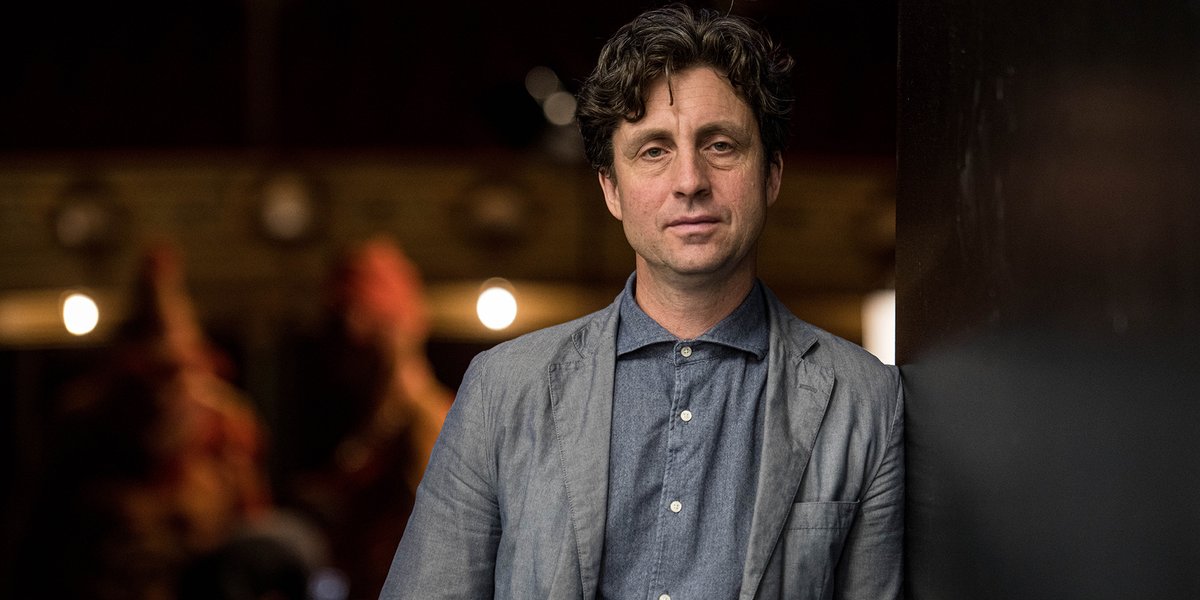Ross Kent
"It was one of those penny-drop moments, ‘I can see myself within that art.’ It was a wake-up call. It awoke that in me. I thought, “What’s the worst you can do? Fail again?’"
"My world is design, podcasting, nail polish, and obnoxiousness. Doing this kind of creativity nonsense full-time would be the dream. I feel like my art is my superpower."
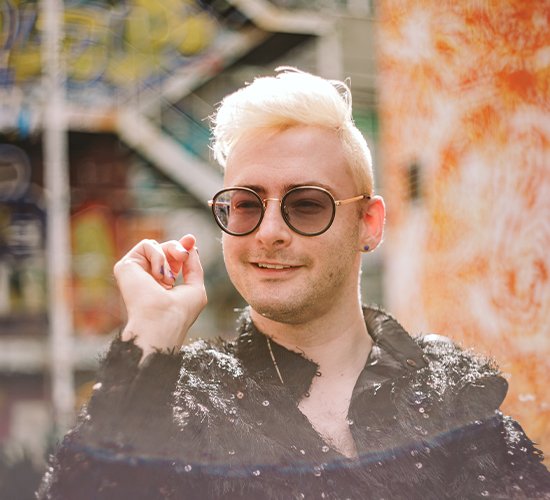
Thirty years ago, Ross Kent was born. He was very small, and very blue.
Ross arrived three months premature. His parents debated naming their little miracle Clark, which would have been a fittingly heroic name for a child who began his life fighting and hasn’t stopped since. In the end, Ross was named after his father.
“I looked like a little alien,” he says now, three decades on. “The fact that I’m still here and 30 years old is a minor medical miracle.”
As Ross grew up, into a slightly more human colour, he became fascinated with technology and the digital world. As a child he was diagnosed with cerebral palsy, a neurological disorder that can affect movement and coordination. He spent a lot of his childhood tinkering with computer software, intrigued by developing technologies. Ross describes his teenage self as “quiet, a bit of a lone wolf” out in the physical world.
“I have always been this kind of obnoxious—to me, ‘obnoxious’ is a term of endearment—this obnoxious human, but I fought against it for such a long time,” he says now. Ross gestures to the glittering pins on his leather jacket and flashes his painted nails. “It made me uncomfortable being this. If that ‘me’ saw me now, I think there would be shock, a jaw-on-the-floor kind of reaction.”
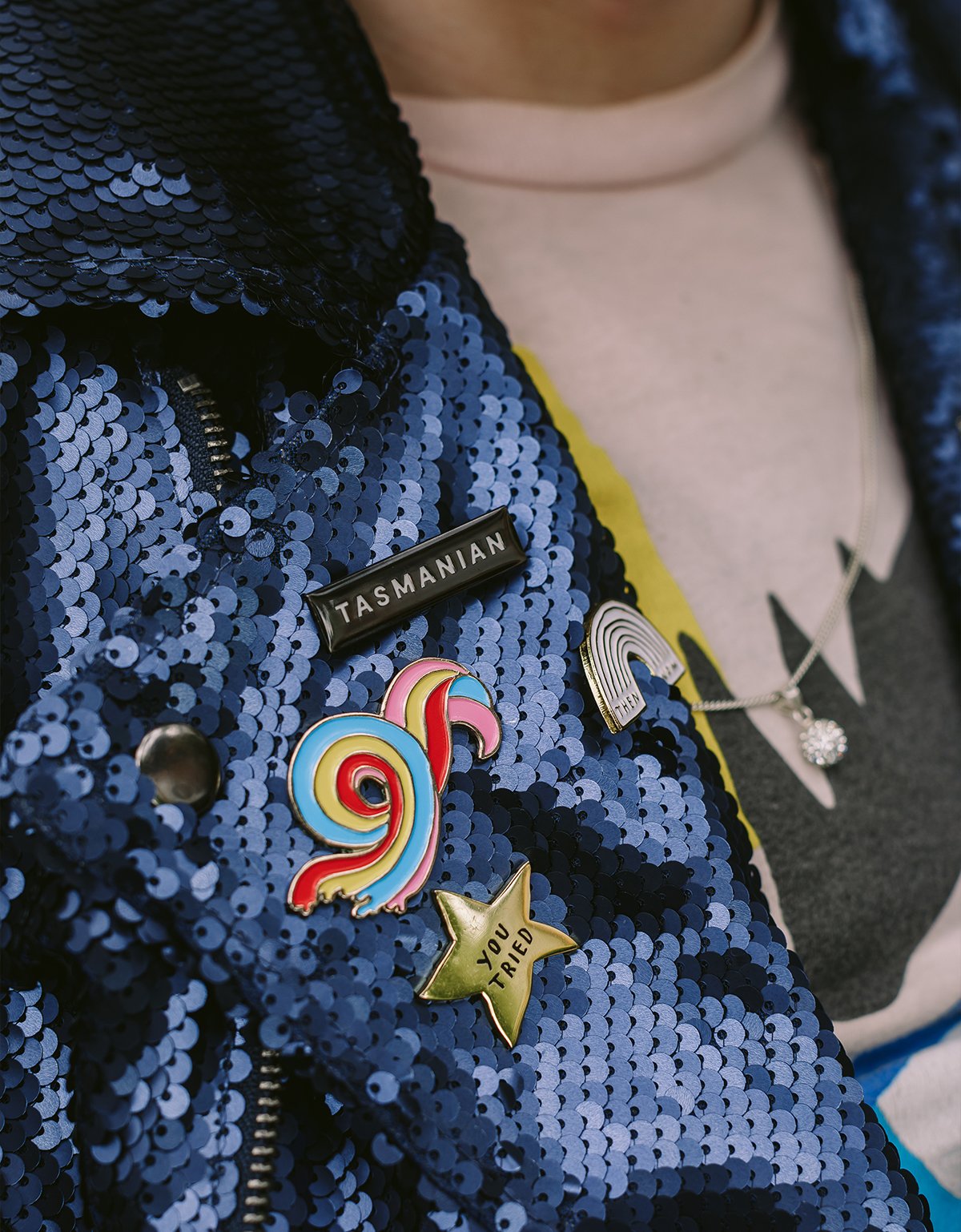
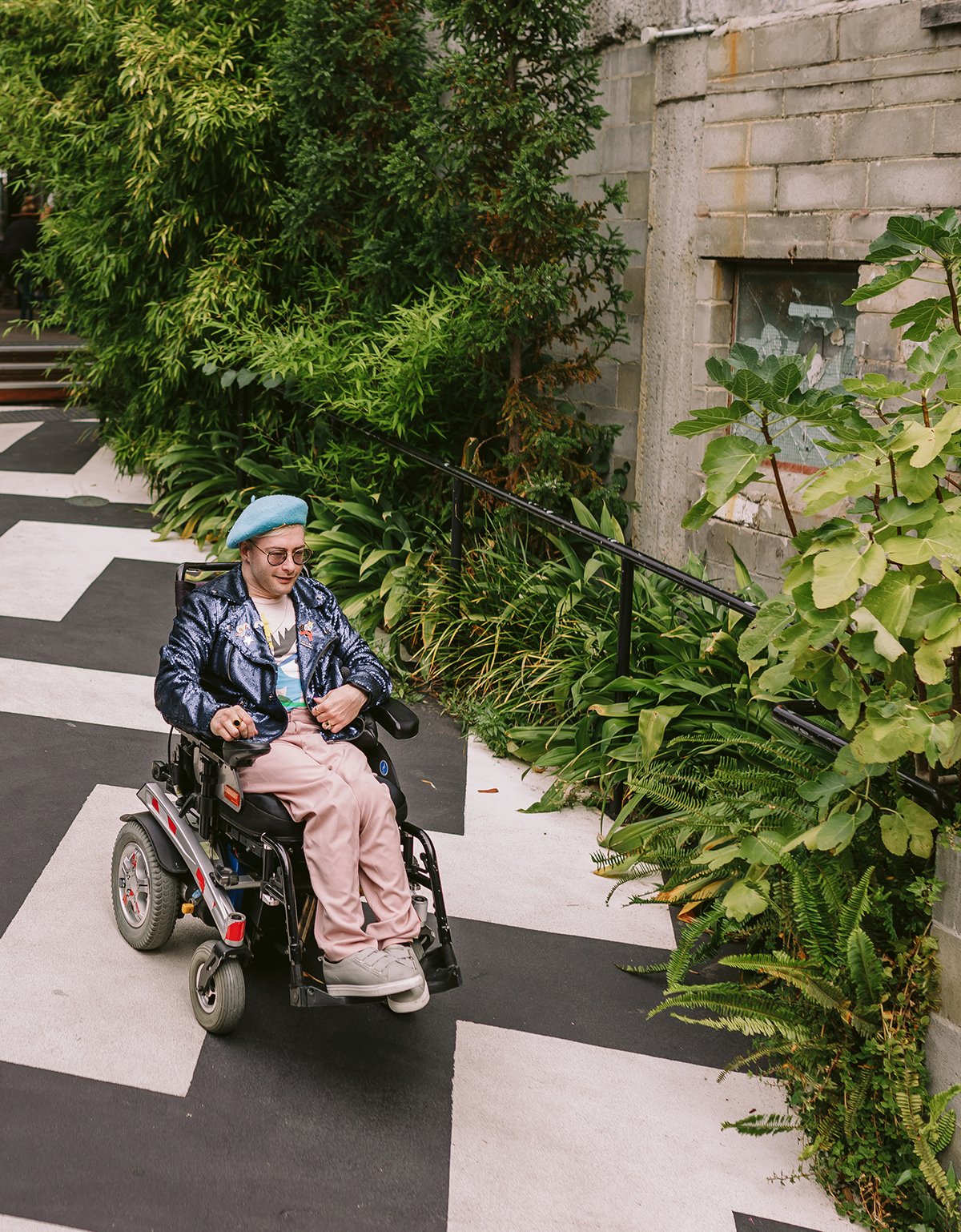
It inspired me, seeing such an artistic human—who, in a lot of ways, kind of comes across as ‘alien’ compared to the more cookie-cutter drag. It was one of those penny-drop moments, ‘I can see myself within that art.’
Through his digital world, Ross found connection and creativity. When he finished school, it seemed like a natural fit to pursue some kind of digital career, but Ross struggled to find his place. “I’m not the best academic student. I failed at a computer science degree and had a nightmare of a time doing an English degree. I went, ‘Okay. Well, what now?’”
He grew to love reality tv, connecting to the character arcs beneath the drama—the underdogs, the Cinderella stories, the heroes’ journeys. He saw human connection in Big Brother, and underestimated outliers in Survivor. He saw other people, just like him, who felt a little bit alien, but embraced it fully.
In the ninth season of Ru Paul’s Drag Race, Ross saw inspiration. Sasha Velour, a Brooklyn drag queen known for her stage spectacles and fierce activism, won season nine in an emotional final lip sync battle that celebrated a different side of drag. Even in an artform that fundamentally celebrates a person’s authentic self, there are still often preconceived ideas of “normal”. Sasha, who was a graphic designer off-stage, felt different.
“Her winner’s journey…” Ross muses. “She was probably one of the first queens that I ever really related to. It inspired me, seeing such an artistic human—who, in a lot of ways, kind of comes across as ‘alien’ compared to the more cookie-cutter drag. It was one of those penny-drop moments, ‘I can see myself within that art.’ Not necessarily drag, but… it was a wake-up call. ‘What are you doing? Why aren’t you following the arts?’ It awoke that in me. I thought, “What’s the worst you can do? Fail again?’”

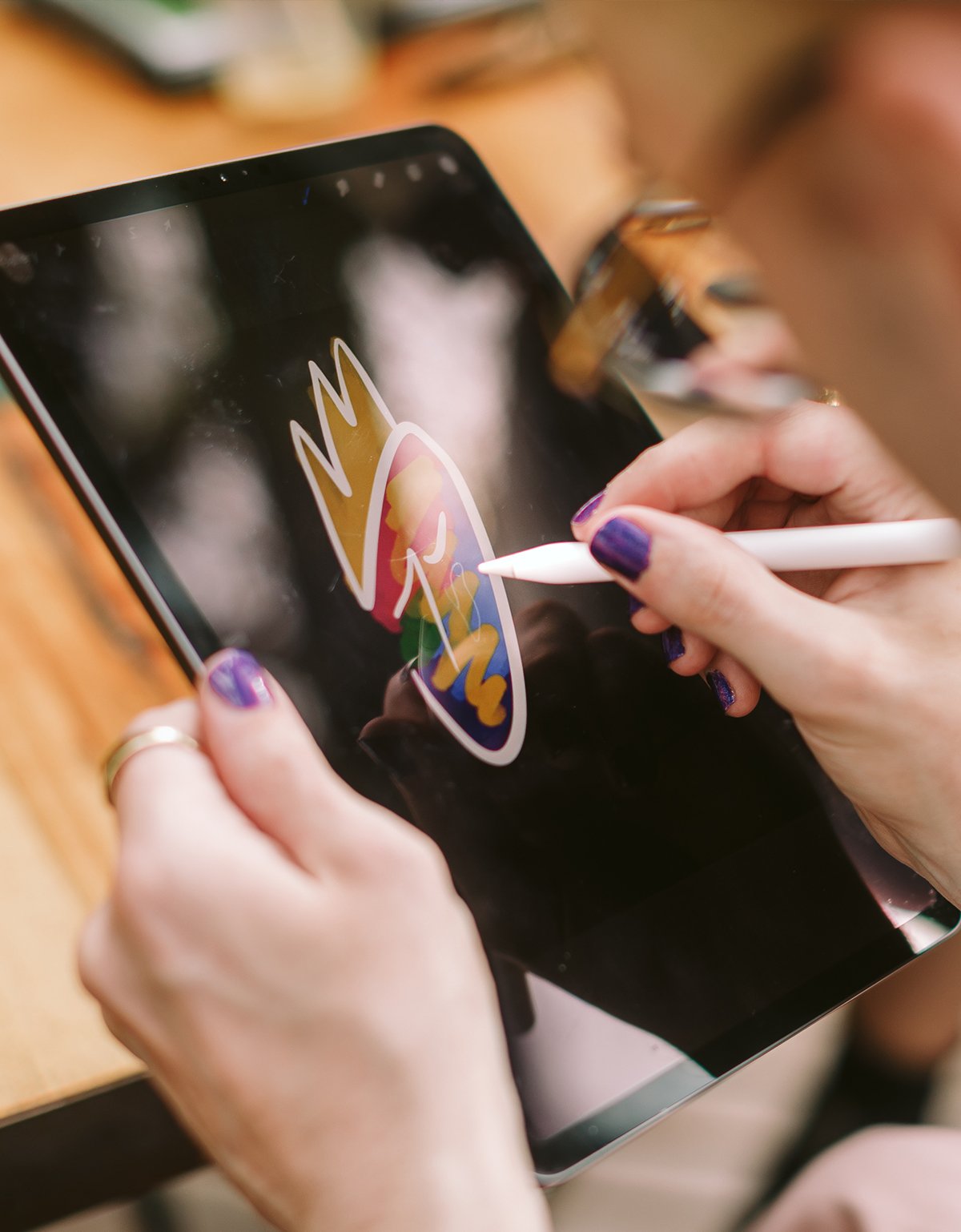
Ross did not fail again. The spark was always there, but now it was lit. Inspired by Sasha, he enrolled in design school and started carving out his own little corner of the internet—Glitterball Creative. During the COVID-19 lockdowns, Ross’s version of baking bread was starting a podcast. He began designing his own prints and t-shirts. In 2021, he won an Emerging Talent Inclusive Work Diemen Award, an award that champions people from the disability sector who have demonstrated emerging skills in Tasmanian creativity industries.
Through Glitterball, Ross found an ever-evolving outlet for his creativity, and a place where people of a similar experience could feel comfortable.
“I wanted it to be a light-hearted, safe space where people can come, connect, talk shit about reality TV, but with a kind spirit. My podcasts can get sassy, but it’s not malicious. It’s the thing I kind of wish I had as a kid. I’m trying to bring people together over things that bring us joy. I spent a lot of my childhood on my own, in my room, affixed to a screen. I was like, ‘I wonder if things would be different if I had this?’”
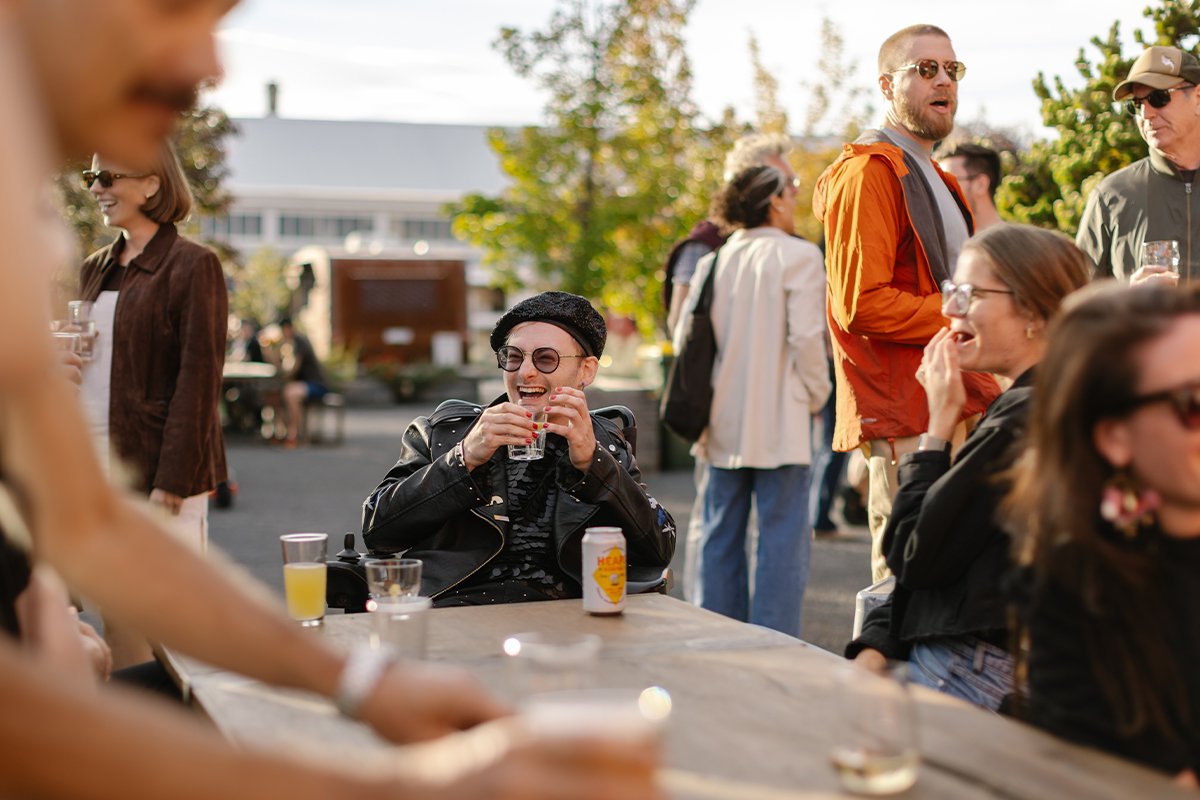
Outside of Glitterball, Ross is embedded in the creative community in Tasmania. He works part time as an in-house graphic designer, social media manager and digital producer, with his own freelance clients on the side. He attributes the connections he has built to being active in groups such as the Design Kids and the Australian Graphic Design Association. Through them, he’s given talks on the importance of passion projects. He has worked with Tasmanian digital art software Procreate on accessibility testing, designed merchandise for himself and others, and produced multiple series of podcasts. When asked to describe what he does, Ross refers to himself as “a camp alien masquerading as a human.” He has built his own world, on his terms.
“It’s like a callback to young me, because that’s what I was doing when I was young. I was worldbuilding. It’s just taken different forms. Now, my world is design, podcasting, nail polish, and obnoxiousness. Doing this kind of creativity nonsense full-time would be the dream. I feel like my art is my superpower.”

We worked with southern Tasmanian photographers Studio Hubert, north west Tasmanian photographers Moon Cheese Studio, and southern Tasmanian videographer The Human Story Films for this Tasmanian story.
Read about more Tasmanians
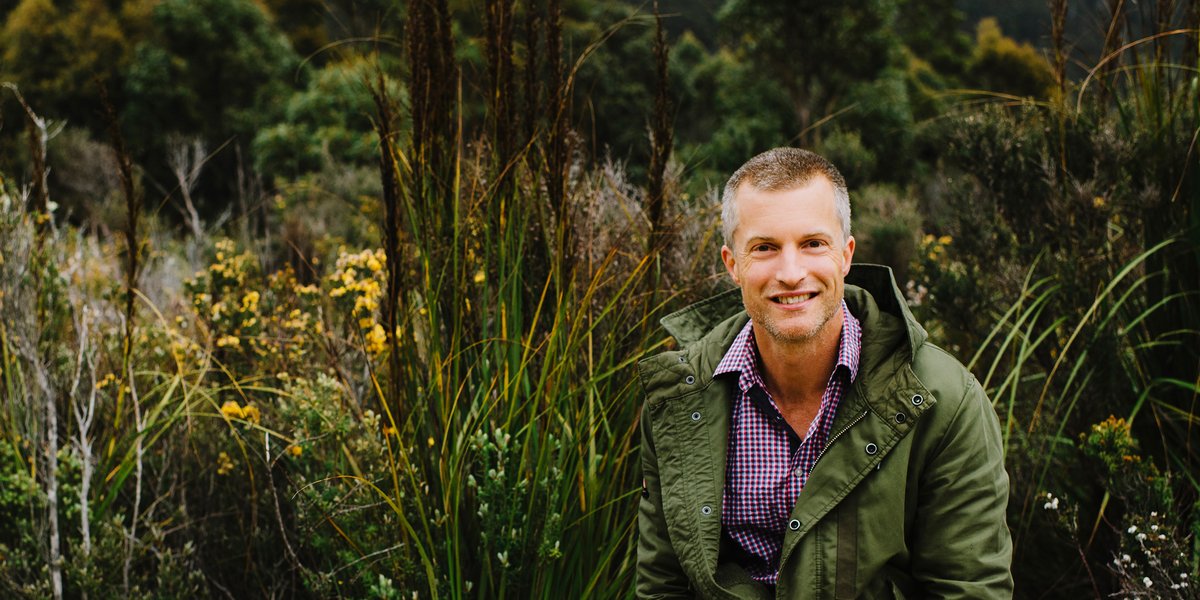
Moss Halliday-Hall
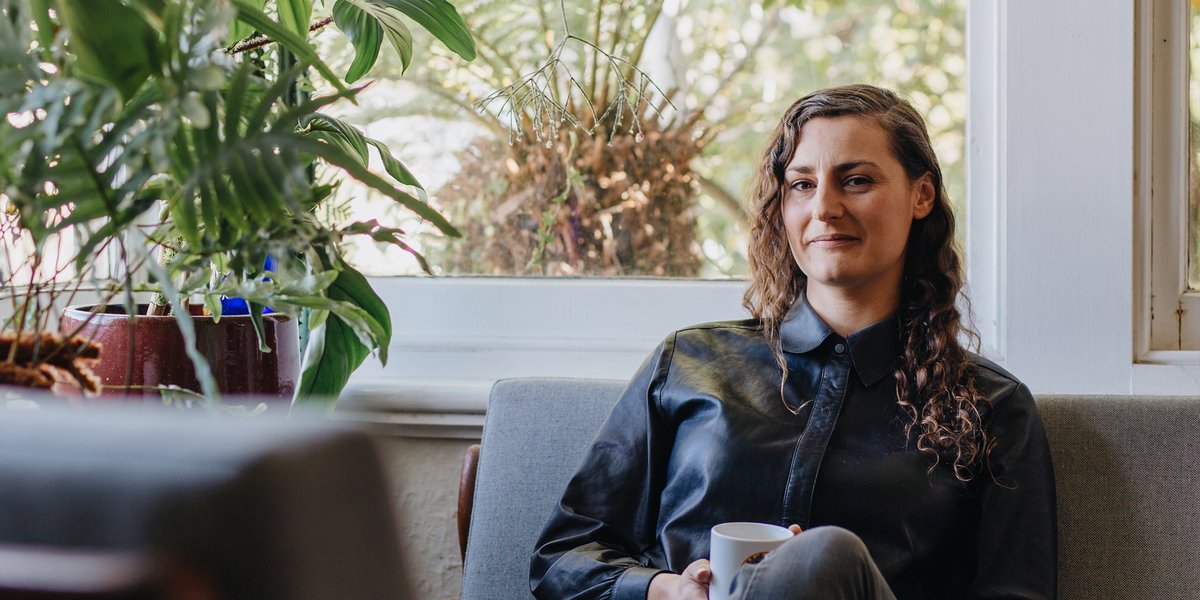
Meg Perkins
